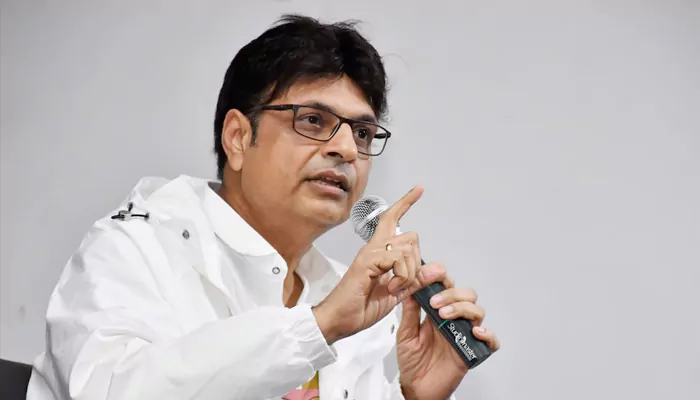
A small-town boy who turned simple truths into timeless songs of love, longing, and rebellion
When we think of Bollywood music that lingers, we think of words that breathe life into melody. Few writers have done this with as much honesty as Irshad Kamil, born on 5 September 1971 in the quiet town of Malerkotla, Punjab. His lyrics are not just songs; they are conversations with the heart. As he celebrates another year of life, it is worth reflecting on how a boy from a small town grew into one of Hindi cinema’s most soulful lyricists.
Irshad grew up in a large family, the youngest of seven siblings, in a middle-class household. Malerkotla, known for its composite culture, offered him a rich blend of Hindi, Punjabi, and Urdu. This multilingual environment gave him a natural fluidity with words. Listening to stories, absorbing folk songs, and quietly observing people around him, he developed an instinct for unspoken emotions. That sensitivity would later become the heartbeat of his work.

Like many youngsters from small towns, Kamil initially pursued a “safe” path—science. But equations never spoke to him. After struggling academically, he turned to writing. In Shimla, he discovered his love for theatre and literature. He acted in plays, wrote poetry, and absorbed the cadence of spoken words. Later, at Panjab University in Chandigarh, he completed a master’s in journalism, sharpening his ability to capture stories. His early years were marked not by instant success, but by a gradual shaping of voice.
Born Mohammed Irshad, he felt his identity incomplete. While browsing a dictionary with his mother, he discovered the word Kamil, meaning “complete” in Urdu. The addition felt natural, almost as if it were destined. That sense of seeking wholeness—of longing for what is missing—echoes through many of his lyrics, where characters yearn, dream, and search for themselves.
Before entering Bollywood, Kamil honed his skills writing for Punjabi theatre and Hindi television serials. His early work included scripts for shows like Naqaab. His breakthrough in films came with Chameli (2004), a collaboration that marked him as a fresh, poetic voice. Soon after, Jab We Met (2007) established him firmly in the industry. Songs like "Tum Se Hi" and "Aaoge Jab Tum" revealed his ability to capture love and vulnerability in the simplest of words.
Much of Kamil’s career has been defined by partnerships—with Imtiaz Ali, Mohit Suri, and composers like A.R. Rahman and Pritam. His work in Rockstar was a watershed moment. The spiritual depth of "Kun Faya Kun," the restless cry of "Sadda Haq," and the ache of "Nadaan Parindey" made the album a modern classic. Later, Aashiqui 2 revived the culture of love ballads with its piercingly simple lines. With Highway, Tamasha, and Kabir Singh, he continued to give Indian cinema words that felt like lived emotions.
What sets Kamil apart is the sincerity rooted in his heritage. He does not rely on flamboyant vocabulary. His writing is conversational, yet layered with meaning. He once said he writes like a child—direct, spontaneous, and curious. This approach, influenced by Sufi thought and poets like Kabir and Baba Farid, allows his songs to feel both deeply personal and universally relatable. Whether rebellion or romance, his lyrics carry the fragrance of home.
Kamil has been honoured with Filmfare, IIFA, and Mirchi Music Awards, including the Filmfare Award for "Aaj Din Chadheya" from "Love Aaj Kal". Yet, his true achievement lies in the timelessness of his work. His lyrics continue to be sung at weddings, in protests, in moments of prayer, and in everyday solitude. They offer companionship—sometimes consoling, sometimes questioning, always sincere.